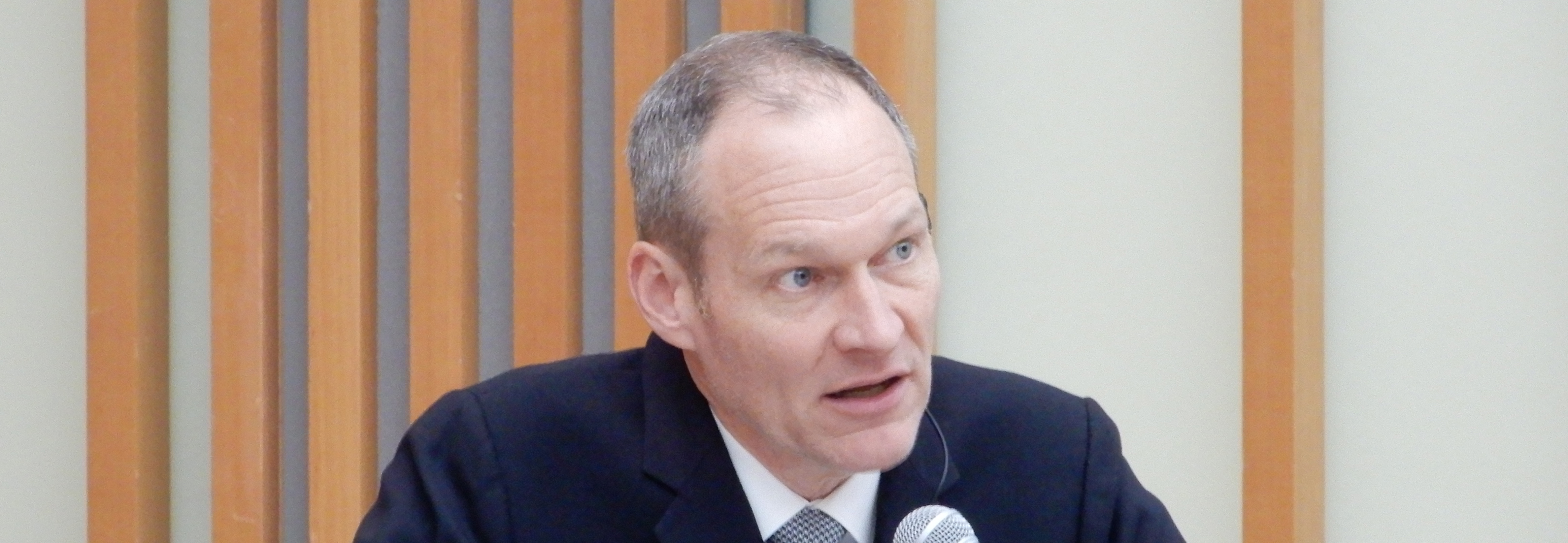
Seminar Inspiring Stakeholders through Corporate Communication J. J. Carter, FleishmanHillard International Communications
February 17, 2025
Tokyo
Keizai Koho Center (KKC) invited Mr. J. J. Carter, Global President and Chief Executive Officer of FleishmanHillard International Communications, one of the world’s largest public relations and strategic communications firms, to speak on “Strategy and Global Perspectives Required for Companies in an Increasingly Diverse and Multipolar Society and Stakeholders.” Fifty executives and public relations professionals of KKC member companies took part in the event.
Actions Required by Global Companies in an Increasingly Complex Business Environment
Mr. Carter highlighted that global companies face an increasingly complex landscape of environmental risks, geopolitical and economic coercion, and social fragmentation, while being caught between rising stakeholder expectations and demands. He noted that a company’s reputation is delicate, constantly fluctuating and being updated. He explained that companies can reduce risks, strengthen business resilience, and enhance its reputation through forward-thinking, strategic communication. He identified the five key elements of strategic communications: forming corporate narratives, leveraging new data strategies, building its own intelligence networks with the government and each industry in advance, early recognition and response to disinformation, and gaining a competitive advantage utilizing AI.
The Mindsets and Behaviors of Corporate Executives and Public Relations Professionals
Mr. Carter emphasized that corporate executives and public relations professionals should act as guardians of their company’s reputation. It is important that they not only disseminate information, but also deliver appropriate messages in a timely manner, and inspire stakeholders to take action. Following his presentation, participants engaged in a lively exchange of views with Mr. Carter, on topics such as DEI (Diversity, Equity, and Inclusion) in the United States, trends in SNS regulation, and relations with government and government-related organizations.
